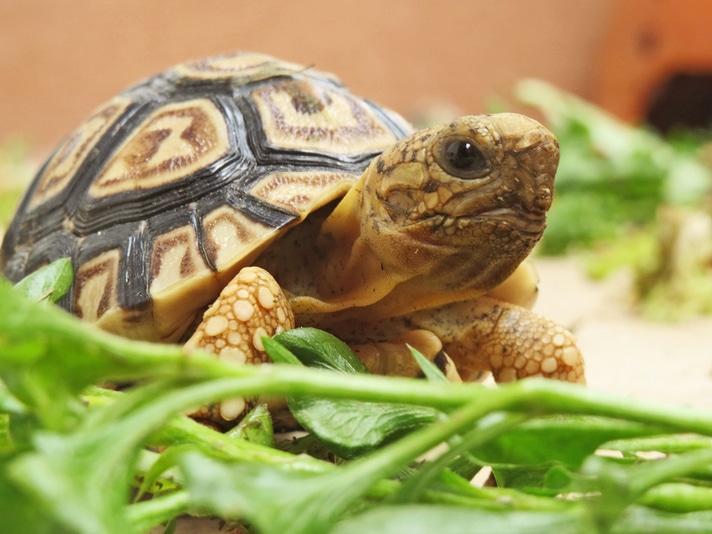What medications should I use when deworming my tortoises?
I raise several different tortoise species and I deworm the tortoises and treat the tortoises with Flagyl routinely. Are there any medications other than metronidazole that will work to treat flagellates for routine use in tortoises? Even the “tasteless” or flavored metro is detected by some of my tortoises.
A. Metronidazole, trade name Flagyl, is quite nasty tasting, unless you have access to the Mexican oral suspension, which is citrus flavored and the most palatable form available (unless your vet works with a compounding pharmacist to make an oral suspension in flavors to mask the bitter taste).
If you have been reading my column, you must have an idea that I am a strong proponent of working with a herp vet. Most vets should be willing to help you with a deworming schedule for your tortoises.
My favorite medication for removing flagellates (protozoa that can cause disease) is ronidazole. However, this medication is not available in human or veterinary pharmacies in this country. It is, however, listed in several catalogues for pigeon supply companies, and they bring this water-soluble powder for use in racing pigeons.
I believe in performing fecal parasite exams on tortoises to try to determine if dewormers are needed, or if meds are needed to help eradicate protozoa. Because many protozoa are quite fragile and won’t survive for long outside of the body, I recommend using a lab where you can use their special preservative that will fix any protozoa in any of their stages for diagnosis at their lab. The tortoise feces are placed in the fixative and then sent to the lab. The lab I use performs six different stains, looking for Giardia, Cryptosporidium, Microsporidium and Entamoeba, as well as performing other tests to look for worm larvae and worm eggs.
The reason for performing fecals is so that you don’t administer unneeded medications to our tortoises. While most dewormers are quite safe in tortoises, there is always a risk associated with any drug. There is also a debate going on about whether some protozoa are beneficial to the gut of some tortoises (especially in the herbivorous species).
I am purposely not giving you a source or the dosage for ronidazole, not to be mean, but hoping that you will contact a herp vet for assistance with your tortoises. It is available in this country and doses are published for tortoises. But I would really like you to establish a good working relationship with a herp vet to assist you with your tortoises.
Margaret A. Wissman, DVM, DABVP has been an avian/exotic/herp animal veterinarian since 1981. She is a regular contributor to REPTILES magazine.
Need a Herp Vet?
Find a herp vet with our comprehensive reptile vet directory. If you cannot find a herp vet using our reptile vet directory, a good place to go is the Association of Reptilian and Amphibian Veterinarian (ARAV) web site at www.arav.com.


